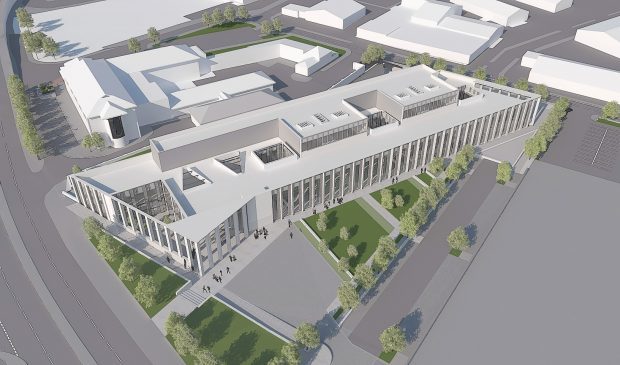As we look back on the recent past, with 2020 well underway and Brexit Day behind us, it has certainly been a very eventful period for those interested in the law in Scotland.
Not only has a former Scottish judge, Lord Reed of Allermuir, been appointed to the most senior legal position in the UK – president of the UK Supreme Court, but in September we were reminded, if we ever needed to be reminded, that no one is above the law and that the rule of law reigns supreme.
I am of course referring to the high drama case that was R (on behalf of Miller) v The Prime Minister and Cherry and others v Advocate General for Scotland. It is not every day that the prime minister of the United Kingdom is brought to account by the courts. Indeed the retiring President of the Supreme Court, Lady Brenda Hale, named the same as her number one on her list of most landmark judgements of her judicial career.
It was a member of the Faculty of Advocates who was instrumental in bringing the matter before the courts in the first place and as I watched the news or listened to the radio reports of the case, I was reminded with pride of the words that I read every day whilst within its training facility, the Mackenzie Building in Edinburgh, during my devilling year in 2014. The then Lord President, the Rt Hon Lord Gill, said the qualities the Faculty represented were: “…a commitment to excellence, a commitment to scholarship and learning, a commitment to the noblest ideals of professional conduct, and, above all, a commitment to justice for all in our society.”
These words are not the preserve of only the high drama cases. Advocates appear in the courts and tribunals all over Scotland as well as in the UK Supreme Court, the Court of Justice of the European Union and the European Court of Human Rights and remain ready and available to be so instructed.
However, a commitment to justice for all in our society is nothing without access to justice. Much more still has to be done in that regard but the new Inverness Justice Centre – due to open this spring – is a significant step in the right direction. The Justice Centre – the first of its kind in Scotland – will aid the delivery of justice in the Highlands. It will have six courtrooms and a tribunals hearing room each incorporating digital technologies. Facilities for video links and the recording of evidence for children and vulnerable witnesses will also be included.
An important feature of the new Justice Centre is that it will be home to a large number of other organisations such as Victim Support Scotland, Citizens Advice Bureau and Scottish Women’s Aid. The aim is the provision of integrated services and facilities.
At a time when legal spend budgets are being ever squeezed and the challenges facing the profession are perhaps greater than ever with the advances in technology and legal outsourcing, this soon to be opening facility is a timely reminder of the history of the Faculty of Advocates and of the role it can play in facilitating access to justice everywhere in Scotland.
As a body, its history dates back to the foundation of the College of Justice in 1532, although individual advocates were probably working in the courts even earlier. The aim was then, and remains today, to ensure that high quality legal advice and representation is available to anyone who needs it, throughout Scotland, not just in Edinburgh, Glasgow and the central belt. In today’s parlance the Faculty of Advocates was then and remains at the forefront of legal outsourcing. It is, or at least ought to be, a resource for the whole legal profession in Scotland, from the sole practitioner to the high street firm to the global firm and for all people in need of legal services.
Advocates can assist with case preparation and case resolution as well as with legal drafting and appearance work. In short the Faculty of Advocates is the referral bar for all of Scotland – from the Shetland Isles to Dumfries & Galloway. The system ensures that access to justice is fair, irrespective of where one lives in Scotland.
The Faculty has always attracted keen legal talent but is not complacent about the future and has already devised a number of initiatives, financial and other, in furtherance of its commitment to attract legal talent from across all our communities in Scotland. Equality and diversity lies at the core of all it does.
The Faculty of Advocates is also an ardent promoter and supporter of open and honest debate in Scottish and UK civil society. In our ever changing times, it acts as an engaged participant in public debate, challenging assumptions and promoting transparency, supports legal reform where appropriate and is determined to ensure that Scots law and its institutions and systems remain at the forefront of legal excellence.
I for one look forward to appearing in the new Inverness Justice Centre and to continuing to work with my legal colleagues throughout the north of Scotland in the interests of justice for all.

